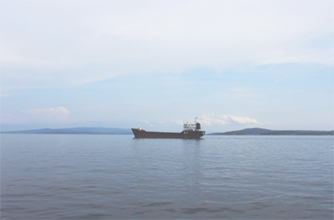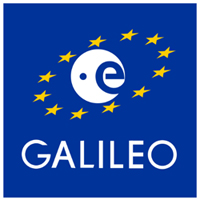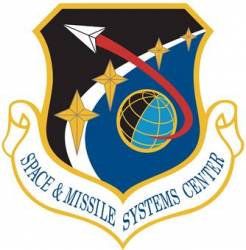Thanks to the POSITION project funded by the European GNSS Agency (GSA), Poland is primed to become a bigger player in the GNSS landscape in Europe.
Thanks to the POSITION project funded by the European GNSS Agency (GSA), Poland is primed to become a bigger player in the GNSS landscape in Europe.
With a significant concentration of high-tech professionals and a large, untapped industrial sector, Poland has positioned itself as an attractive market for European GNSS (E-GNSS). To help ensure the industry takes advantage of the many opportunities that the country has to offer, the GSA-supported POSITION (POlish Support to Innovation and Technology IncubatiON) project has worked to increase E-GNSS market penetration and general awareness within the country. Specifically, the project focuses its efforts on start-ups and early stage investment opportunities for Polish companies looking to utilize E-GNSS technology.
“When the project launched, the penetration of E-GNSS in Poland was very low, and most investors and companies were generally unaware of the potential presented by E-GNSS applications,” POSITION Project Coordinator Dr. Krzysztof Kanawka said in a GSA press release earlier this week. “Furthermore, start-ups and SMEs were unable to access capital within Poland, which limited their expansion and their ability to implement new technology —including E-GNSS.”
Poland has started up
With assistance from numerous networking opportunities for entrepreneurs and investors organized by the project over the last several years, the outlook for Poland and its GNSS technology advances is starting to change for the better.
This transition can be seen in the number of successful start-ups that have come out of the project. For example, Aerobits, the winner of the 2016 Galileo Masters Poland Prize, developed an integrated technology that facilitates safe and shared airspace use by both manned aircraft and drones. Its ability to both receive and decode functions for Automatic Dependent Surveillance-Broadcast (ADS-B) and GNSS signals makes it possible to identify all manned aircraft within the direct vicinity of a given UAV.
ChipCraft, another POSITION-supported start-up, is a single-chip dual frequency solution for precise positioning. The company says that their inspiration came from seeing many applications requiring precision better than one meter and reliable positioning, but the cost and size of getting the levels required kept them out of the market. To fill this gap, ChipCraft provides a high-quality, dedicated, integrated System-on-Chip (SoC) for precise positioning. It sees applications in telemedicine and wearable electronics as its core market.
ChipCraft is a Poland-based fabless semiconductor private company with development offices in Warsaw and Lublin. The company is focused on providing custom SoC solutions for precise positioning and Telehealth/Telemedicine wearables markets.
In the maritime sector, Poland’s NAVDEC developed an autonomous ship as a means of avoiding at-sea collisions. Since more than 80% of at-sea collisions are reported to be the result of human error, the NAVDEC navigational decision support system takes the human factor out of the maritime navigation equation. Its navigation decision support system uses GNSS positioning, in combination with other technologies, to qualify encounter situations in accordance to collision regulations and provides the navigator with ready-to-use avoidance solutions.
SUP4NAV <http://www.sup4nav.eu> has been established by a group of scientists from the Maritime University of Szczecin, creators of NAVDEC. The company is launching the technology with assistance from the investor Polish Entrepreneurs Foundation.
Building on experience
These new companies in Poland, along with other POSITION-supported companies, are all at a critical stage in their development, according to the GSA. They each have a marketable GNSS-enabled device or service in hand, but now most of these start-ups need additional funding in order to get these devices and services to market.
“We have used the experiences gained during the POSITION project as the foundation from which to launch a range of new activities in Poland, including the Space2ac acceleration program,” said Kanawka. The accelerator was launched in the summer of 2016 with six teams from Europe, each active in various satellite data domains, including GNSS, and all working toward market entry and customer acquisition. In 2017 and 2018, Space3ac plans to turn its attention to linking large industry players with small technological entities, particularly in the field of intermodal transport.
Funded under the Horizon 2020 Framework Programme for Research and Innovation, the POSITION project is a collaboration between Polish venture capital fund Black Pearls Investments (BPI) and Munich-based consultancy SpaceTech Partners.
According to research from the project, the Polish market is best characterized as having great potential but little penetration.
“Currently, the penetration of E-GNSS in the country is very low, and most investors and companies are relatively unaware of the potential presented by E-GNSS applications,” said Kanawka. “More so, start-ups and SMEs are unable to access capital within Poland, which limits expansion and thus their ability to implement new technology, including European GNSS.”
With the recent launch of two new Galileo satellites, more and more European – including Polish – start-ups and SMEs can expect increased opportunities to implement E-GNSS technology.
Speaking at the launch, European Commission for Internal Market, Industry, Entrepreneurship and SMEs Elżbieta Bieńkowska said: "Today we demonstrated again that Europe has state-of-the-art know-how, cutting edge technology, and the vision and determination to accomplish great things… (and) Galileo will soon provide you with great opportunities."
With a concentration of start-ups and SMEs in Poland, POSITION will start by providing networking opportunities for entrepreneurs and investors. The goal is to use the model and implementation of GNSS technology that has been successfully used across Europe, thus focusing on such specific sectors as Location Based Services (LBS), Road, Agriculture and Maritime.
Project organizers further note that Poland has a proud history of technological advancement, with a large number of students enrolled in technical and scientific programs – all potential customers of E-GNSS technology.






